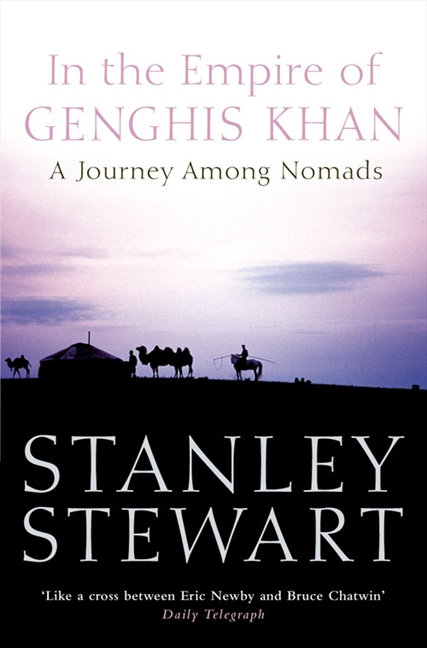|
English Summary/英文概要: As a child, award-winning travel writer Stanley Stewart dreamed of crossing Mongolia on horseback. This is the story of how that dream was fulfilled by following in the footsteps of a 13th century Franciscan friar.
Eight centuries ago the Mongols burst forth from Central Asia in a series of spectacular conquests that took them from the Danube to the Yellow Sea. Their empire was seen as the final triumph of the nomadic ′barbarians′. But in time the Mongols sank back into the obscurity from which they had emerged, almost without trace. Remote and outlandish, Outer Mongolia became a metaphor for exile, a lost domain of tents and horsemen, little changed since the days of Genghis Khan.
In this remarkable book, Stanley Stewart sets off in the wake of an obscure 13th century Franciscan friar on a pilgimage across the old empire, from Istanbul to the distant homeland of the Mongol Hordes. The heart of his odyssey is a thousand-mile ride on horseback, among nomads for whom travel is a way of life, through a trackless land governed by winds and patterns of migration. On a journey full of bizarre characters and unexpected encounters, he crosses the desert and mountains of Central Asia, battles through the High Altay and the fringes of the Gobi, to the wind-swept grasslands of the steppes and the birthplace of Genghis Khan.
Vivid, hilarious, and compelling, this eagerly-awaited book will take its place among travel classics - a thrilling tale of adventure, a comic masterpiece, an evocative portrait of a medieval land marooned in the modern world.
Awards/获奖情况: Stewart finally fulfilled a childhood desire to experience nomadic Mongol life when he set out on a 1000-mile trek on horseback across Outer Mongolia. Enlisting the services of a sturdy steed and, at separate stages, two guide-translators, he traversed the Gobi desert to Quaraqorum, the ancient capital, and pressed on to Dadal, the birthplace of Genghis Khan. Relishing Mongol customs and culture, he slept in round-tented gurs, drank airag (fermented mare’s milk), devoured mutton with his various hosts, and, among other empathetic gestures, partook in a shaman’s divinatory ceremony. His observations of social and spiritual detail are supplemented with relevant historical background, and his more memorable encounters are often imbued with affable-if not self-deprecating-humor. Stewart, the only author to have twice received the Thomas Cook Travel Book Award (for both this title and his earlier Frontiers of Heaven), offers an engaging travel memoir. Recommended for most public and academic libraries.---Lonnie Weatherby, McGill Univ. Lib., Montreal, From Library Journal Stewart, a British journalist and travel writer (Old Serpent Nile), takes a 1,000-mile horseback journey across Mongolia, the homeland of Genghis Khan. The author has a gift for merging history and anecdote and succeeds in engaging the reader throughout this informed narrative. Although their culture is dying out, nomadic Mongolians still live in gers (wood-framed felt tents) that can be quickly dismantled and transported across the Asian steppes as they travel continuously on horseback in search of pasture for their sheep, goats and yaks. Stewart vividly describes the days he spent on horseback with his guides, riding through desolate but breathtaking scenery. During his trip, he enjoyed remarkable hospitality from the nomads, who gave him a place to sleep and fed him mutton and airag (fermented mare’s milk). His unusual adventures include a wedding, an encounter with a shaman and a visit to a clan meeting. Stewart blames the brutal introduction of communism into the country for Mongolia’s troubles and, unfortunately, demonstrates his contempt for Russia by caricaturing many of the Russians he encountered. But this is the only discordant note in an otherwise excellent travelogue, which received the U.K.’s 2001 Thomas Cook Travel Book Award. Photos.---From Publishers Weekly
|

